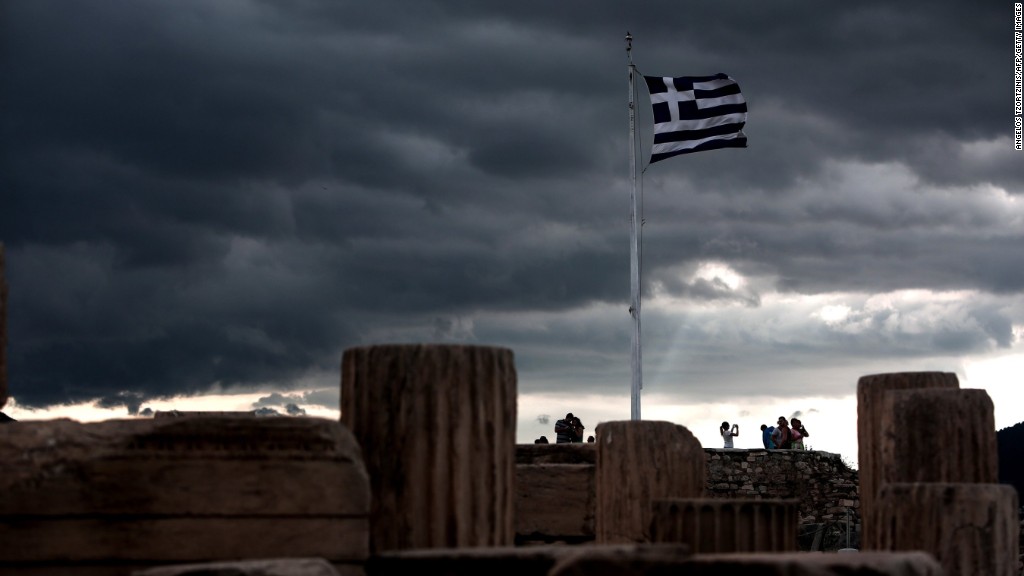
Here's one way of solving a problem: Throw some money at it. If that doesn't help, throw some more.
The European Central Bank pumped more emergency cash into Greek banks Friday, keeping them afloat while politicians try one last time to keep the country solvent.
An ECB spokesman declined to comment. But a Greek government minister was more forthcoming.
"The ECB has responded to the country's needs. The deposits are safe. This is good for the stability of the banking system," minister of state Nikos Pappas told CNN.
European finance officials failed Thursday to strike a deal to release the remainder of Greece's 240 billion euro ($272 billion) bailout fund, bringing the country one step closer to a default and potential exit from the eurozone.
Greek banks have been bleeding cash because account holders worry they may be unable to withdraw their money in a crisis, or that the country may have to replace the euro with a less valuable currency.
More than 30 billion euros has poured out of Greek bank accounts over the past seven months, and local media say that trend accelerated this week -- some reports suggest outflows hit one billion euros on Thursday alone.
That leaves the banks dependent on the ECB -- its assistance has more than doubled this year to 118 billion euros, equivalent to about 66% of Greek GDP.
The central bank may have no choice but to sever that lifeline if Greece defaults on its debt.
Shares in major Greek banks got a boost from the ECB's liquidity injection. Alpha Bank (ALBKF) gained 7%, while Eurobank (EGFEY)rose 5%.
Who is losing the most on Greece?
Greece must pay the International Monetary Fund 1.54 billion euros by June 30, which is also when its bailout agreement is due to expire. It does not have access to international credit markets and without the bailout money, it would have to default.
Longer term Greece may be forced to start printing its own money in order to pay pensions and public sector salaries, taking Greece out of eurozone.
The EU has called an emergency summit of eurozone leaders for Monday for urgent talks on the crisis. That will be preceded by one more round of talks among finance officials.
Related: Greece's ultimate doomsday scenario
-- Isa Soares and Chris Liakos in Athens contributed to this article


